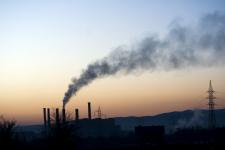 Kosovo’s government has revealed details of a tender for a 3.5 billion euro energy deal, seen as crucial for the economic and ecological development of the country.
Kosovo’s government has revealed details of a tender for a 3.5 billion euro energy deal, seen as crucial for the economic and ecological development of the country.
A 2,000 megawatt, MW, plant is planned for the outskirts of Pristina in two 1000MW phases, which will allow Kosovo to provide enough energy for its 2million residents and become a major electricity exporter.
Pristina Insight revealed in its last edition the struggle between the USA and the World Bank, and different factions of the government, over what should be offered in the tender.
Principally, the opposing sides could not agree on whether the tender should include Kosova A and B, the country’s aging power stations, and whether the full 2,000MW power plant should be included in the first tender, or 1,000MW in the first tender, with the possibility of another 1,000MW plant in the future.
Pristina Insight understands that, during a visit by senior Kosovo leaders to Washington earlier this month, the World Bank and the US agreed to take a joint position.
Several officials close to the deal have told Pristina Insight that the compromise broadly favours the World Bank position, which advocates not including the older power stations in the tender for the new Kosova e Re, New Kosovo, power plant, and a phased approach to building the new lignite-powered plant.
Prime Minister Hashim Thaci said on Wednesday that a 2,000 MW plant would be built in two stages, with the first 1,000 MW plant being built immediately.
The government expects to close Kosovo A in 2014 or 2015 and Kosovo B will be renovated as part of a separate public-private deal.
The power plant is aimed at ensuring sufficient energy supply for domestic consumption and export, says Kosovo’s Prime Minister, Hashim Thaci, adding that the new facility will meet European standards.
Kosovo reportedly sits on the fifth largest lignite reserve in the world, and the export of power to the region is seen as key to the country’s economic development.
But on the eve of the decision, German company RWE pulled out of the tender bid for Kosova e Re.
A press release issued by the company said that “the company is pulling out due to the complexity of the construction and the level of project maturity”.
Three consortiums remain in the race for this lucrative deal.
“Transparency will be the crucial element throughout this process,” said Thaci, adding that this is part of a long term strategy for sustainable energy supply.
As part of the deal, lignite reserves at Bardh and Mirash, and the new Sibovc mine, will be provided to the winning bidder for a set period of time.
“The new power plant will ensure enough supply for domestic consumption and export,” Thaci added.
Pollution from the ageing power plants pose environmental and health problem to the 700,000 residents who live in the densely populated region surrounding the two lignite-fired power plants, 10 kilometres from Pristina. The underperforming facilities also fail to provide the necessary 1000MW needed to supply Kosovo customers.
People of Kosova A and B suffer from 200 tonnes of dust released into the air each day. The plants also emit sulphur dioxide, nitrogen oxide and carbon dioxide at levels well above the EU standards.
Kosovo’s premier promised that Kosova e Re will be built with the newest technology and with the possibility of carbon capture, a largely untested technology on such a large scale.
Thaci has not said when the government will select a bidder for this project.
 Eurasia Press & News
Eurasia Press & News
